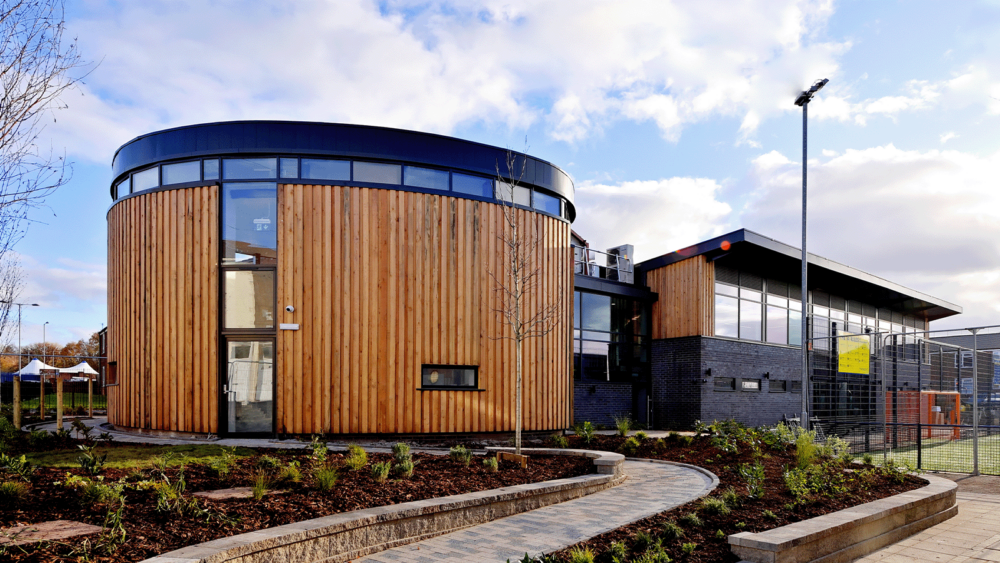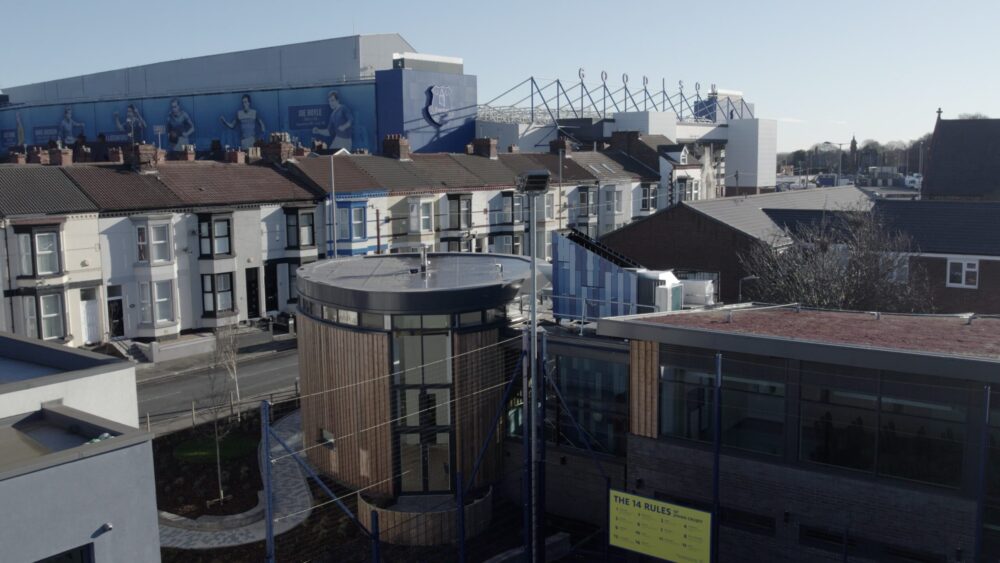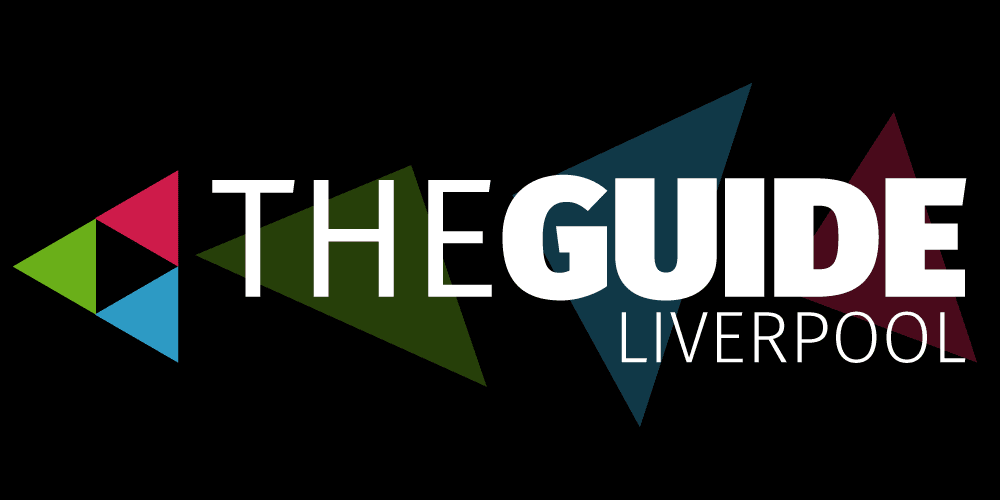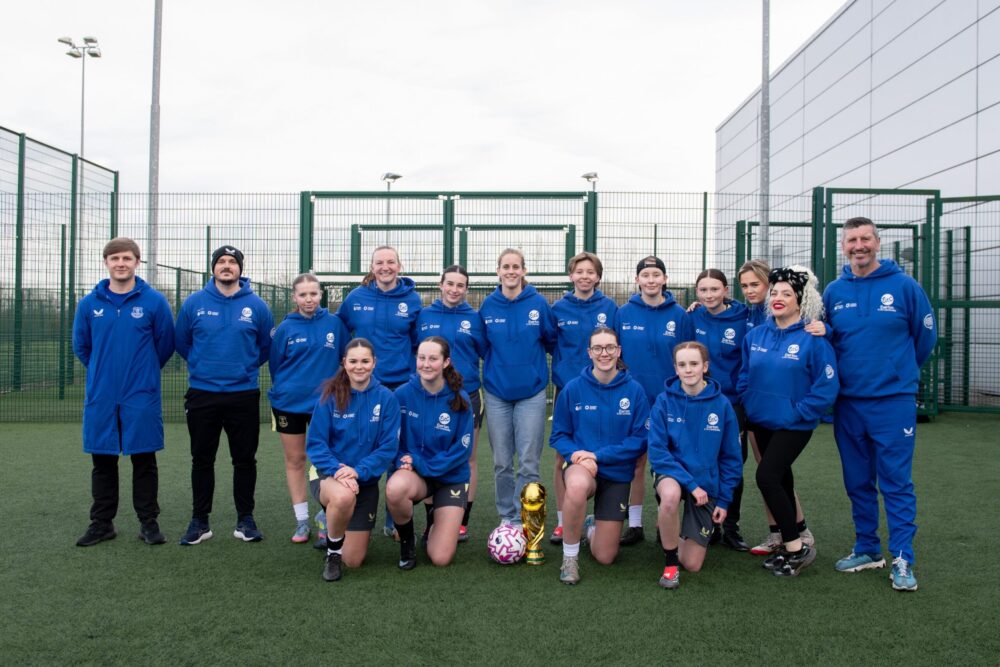
Everton FC
Everton in the Community launches ADHD Support Hub for neurodiverse young people
1 year ago

Everton in the Community has launched an innovative programme aimed at supporting children and young people aged six to 16 with attention deficit hyperactivity disorder (ADHD).
The ADHD Support Hub, funded by the global pharmaceutical company Takeda and developed in collaboration with Qbtech, Edge Hill University, and Alder Hey Children’s Hospital, offers a range of specialist, universal, and targeted ADHD support services to participants and young people from the local community.
Everton in the Community (EitC) has become the first football community organisation to utilise the QbTest, a cutting-edge assessment tool designed to help diagnose ADHD more quickly and accurately.
The QbTest has recently been recommended for use on the NHS for children aged six to 17 and is a computer-based assessment that tracks their movements whilst measuring the three main symptoms of ADHD; inattention, impulsivity, and hyperactivity. The results are then compared with patients of the same age and gender who do not have ADHD.
According to NICE, clinical trial evidence found that using QbTest as part of a standard NHS clinical assessment for ADHD resulted in more people receiving a diagnostic decision within six months, compared with the standard clinical process which is reliant on clinical interviews and subjective rating scales. Whilst EitC cannot provide a diagnosis, the charity is helping to streamline the process by offering QbTest which can support clinical decision making from Alder Hey Children’s Hospital as part of a comprehensive ADHD assessment.
EitC’s long-standing partnership with Alder Hey Children’s Hospital has extended to the charity’s ADHD Support Hub. An ADHD diagnosis can only be made by an appropriately qualified healthcare professional and thus, following the patients’ QbTest at EitC’s L4 Campus, the children and young people will then be referred to Alder Hey Children’s Hospital for their expertise in the diagnosis of ADHD. The charity’s ADHD Support Hub will also be supported by its resident GP who will be on hand to provide further guidance.

Stephen Wynne, Neurodiversity Coordinator at Everton in the Community said:
“We’re delighted to be officially launching our ADHD Support Hub to our participants and the local community. We’re the first Club Community Organisation to host QbTest in a community setting and this will hopefully enable many local children and young people living with ADHD to receive an assessment faster and more accessibly with vital support from our partners and resident GP.
“We’ve also piloted a targeted support programme which has been a huge success with our neurodivergent participants which we aim to expand as well as the overall delivery at the Hub. We’re dedicated to ensuring that the needs of neurodivergent children and young people across Merseyside are met and look forward to seeing how the Hub develops.”
Dr Chris Pritchard, resident GP at Everton in the Community, added:
“Over the last few years there has been a significant increase in the number of children and young people across the UK who have been diagnosed with neurodiverse conditions including ADHD.
“Parents of neurodivergent children often struggle to identify the right source of support for their families and EitC’s ADHD Support Hub will provide a vital service and a beacon of hope for many across Merseyside. The Hub is the first of its kind attached to a football club community organisation and it will work to enhance access to ADHD testing as well as offer holistic support for many local families with neurodivergent children.”
The charity’s universal support is embedded across its existing 60+ programmes which allows EitC staff to refer their participants to the Hub if they are presenting symptoms of neurodiversity. In addition, EitC’s universal strand of support has seen the rollout of neurodevelopment training to its workforce from ADDvanced Solutions and the ADHD Foundation, enabling more staff across the charity to support neurodivergent participants.
Elsewhere, as part of EitC’s targeted strand of support, the charity piloted ‘STEPS’, a six-week collaborative programme with Edge Hill University. STEPS was designed to support neurodivergent participants by offering them community-based solutions including sports sessions as well as skills workshops around topics such as self-advocacy and self-reflection.
Eight participants from the charity’s ‘Safe Hands’ programme – which supports neurodiverse young people aged 10 to 16 who may find mainstream education overwhelming – completed STEPS and significantly benefitted from the project, all of whom gained new skills and confidence as a result. Building on the success of the pilot, EitC aims to roll out the STEPS programme to a wider scale in the near future and host weekly support workshops for parents of neurodivergent children and young people as part of this.











 Subscribe
Subscribe Follow Us
Follow Us Follow Us
Follow Us Follow Us
Follow Us Follow Us
Follow Us











